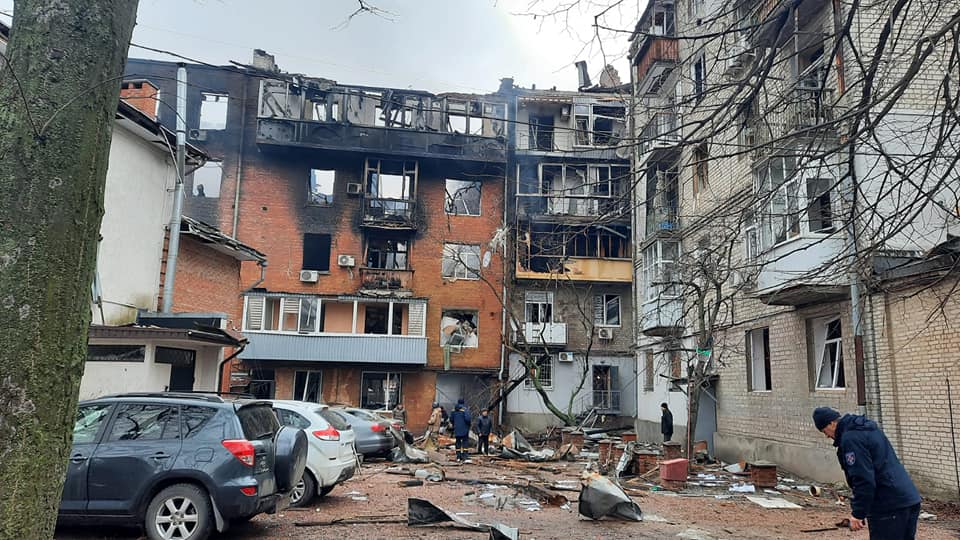
Accountability for Russian crimes in Syria and Ukraine
Those who commit atrocity crimes – whether in Syria, Ukraine, or elsewhere – must be held accountable. But in the fog of war, it is difficult to know how to pursue justice. Here, the Syrian experience is instructive.
Since the start of the Syrian conflict, smartphones have captured millions of videos depicting possible human rights violations and war crimes. It quickly became apparent that this documentation could eventually serve as valuable evidence of criminal wrongdoing in future accountability processes. So SJAC began the process of scraping and preserving this material before it was subject to take-downs by social media companies. We also needed a way to identify relationships between data to build cases against perpetrators.
Commercial software was too expensive, and other options lacked sufficient functionality, so we created our own data management software called Bayanat. To date, we have preserved 1.4 million videos, of which we have analyzed 450,000 based upon our methodology informed by international humanitarian law. SJAC has defined a series of terms based on the Geneva Conventions to allow analysts to accurately and consistently identify and tag violations depicted in videos, testimonies, and other documents. This in turn permits word searches across large amounts of data and allows us to see patterns and to assist prosecutors and investigators in building cases. Some of these cases are moving forward against former government officials and fighters outside of Syria under a doctrine known as universal jurisdiction. We have made this technology open-source, free for all to download and customizable making it suitable to use in other contexts.
Although the nature of conflicts vary, a number of lessons are transferable to Ukraine where Russia appears to be operating from the same playbook it adopted in Syria. One pattern is a practice of targeting civilian objects, such as hospitals. In Syria, the UN created a deconfliction mechanism to identify the location of hospitals that must not be targeted according to well-established principles of international law. Russia then targeted these same hospitals for bombing as was shown in a series of New York Times investigations that analyzed flight patterns, Russian radio traffic, and video evidence. Russia is again suspected of directly targeting hospitals in Ukraine which could be avoided with minimal effort. This pattern of conduct suggests that these attacks are intentionally directed at protected objects and persons.
Other patterns we have seen include the use of weaponry and tactics that violate international law as provided by the Geneva Conventions. There are numerous reports indicating Russia’s use of cluster munitions indiscriminately against civilian populations. Our analysts have observed dozens of videos from Syria showing just this type of conduct and we are now seeing several similar reports in Ukraine. In addition, perfidy is the use of treacherous means, such as false surrender, to wage war. This is the very conduct of which Russians are suspected in Ukraine, with reports that Russian soldiers waved white flags to gain proximity to Ukrainian fighters before firing upon them. Further, siege tactics caused devastating human losses in Aleppo and Russia has taken great pains to limit humanitarian passageways in Syria by vetoing efforts to authorize relief. Russia committed further war crimes in Syria by directly targeting humanitarian relief with airstrikes. Russia is now employing similar siege tactics in Ukraine.
The Geneva Conventions were negotiated – and agreed to by the Soviet Union – as a rulebook constraining the conduct of armies to reduce human suffering. The patterns of violations committed by Russia in Syria and now in Ukraine suggest that Russia is using the Geneva Conventions to identify prohibited conduct – and then to engage in that very conduct. No action is too extreme – no principle of international law sacrosanct – in the eyes of Russia.
To maintain the international legal order and to ensure that perpetrators are held to account, the hard work of preserving evidence must start now. SJAC stands ready to assist and has translated its free software into Ukrainian in solidarity with the people of Ukraine. We hope that this may help to kickstart the process of accountability that Ukrainians deserve.
______________________________________________________
For more information or to provide feedback, please contact SJAC at [email protected] and follow us on Facebook and Twitter. Subscribe to SJAC’s newsletter for updates on our work